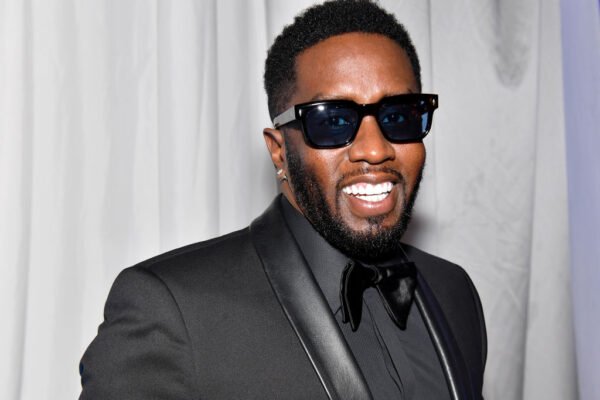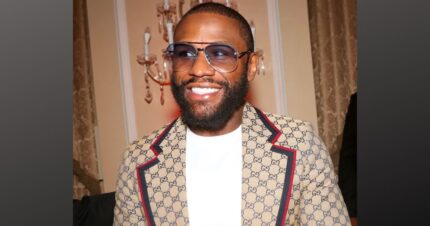Hip-hop is as successful as it is today because men like Andre Harrell had a vision it could build a Black economy, rap mogul Sean “Diddy” Combs recently told Variety in an interview that focused on the 50th anniversary of hip-hop’s creation.

Combs paid tribute to his late mentor, the founder of Uptown Records.
The Boss Culture
Harrell’s contributions to the music and film industries have left an indelible mark. Harrell helped pave the way for greater representation of Black artists, executives, and creatives in the entertainment industry.
Harrell, born on Sept. 26, 1960, and passed away on May 7, 2020, was a prominent figure in the Black music industry, having defined the entertainment scene between the late 1980s and early 1990s with his New Jack Swing music style.
The late producer worked with various artists and played an essential role as a songwriter, and he bridged the gaps between hip-hop culture and business that helped create a flourishing musical enterprise.
In 1983, Harrell met Russell Simmons, a co-founder of Def Jam Recordings, and went to work for Def Jam. Within two years Harrell became vice-president and general manager. After a few years working at Def Jam, Harrell left and founded his own label called Uptown Records in 1986. He gave Diddy his start in 1990.
“At first it was about the rawness, but when he saw big stars like Michael Jackson or Luther Vandross or Aretha Franklin, he saw hip-hop, you know what I’m saying? He saw something bigger. He didn’t minimize it the way it was being minimized — he really saw it globally. He was able to show us how to use hip-hop to build a Black economy,” Diddy told Variety.
In 1988, Harrell landed a $75,000 deal label deal MCA Music Entertainment Group to produce a compilation album, “Uptown Is Kickin’ It,” which dropped in 1987. The album’s success led to more releases and an expanded deal. After multiple successful releases, MCA offered Harrell a reported $50 million multimedia deal in 1992. This involved film and television productions. Uptown developed the feature film “Strictly Business” in 1991 and Fox’s hit police drama series “New York Undercover,” which aired from 1994 until 1998. “Strictly Business” starred Tommy Davidson, Joseph C. Phillips, and then-new actress Halle Berry.
Harrell’s Uptown Records was responsible for launching the careers of several successful artists, including Mary J. Blige, Heavy D & The Boyz, Jodeci, and others, including Diddy, an intern who gradually became an A&R.
Uptown became known as the first lifestyle label. Harrell was one of the first to recognize the significance of the relationship between music and fashion, encouraging his artists to embrace stylish and trendsetting looks, turning them into fashion icons, and incorporating fashion into the marketing of Uptown Records.
Diddy was fired from Uptown Records after some tension between him and Harrell. However, the Harlem-born billionaire described his interaction with Harrell as tough love.
“He was the boss that partied with you, and he was the boss that nurtured you. He was your friend and your mentor. He could laugh and joke with you — you might be at the studio and then go out to a nightclub just to hear music, you know? He was the boss you loved to have,,” recalled Diddy, who went on to launch his own successful label, Bad Boy Records.
Harrell renamed Uptown Records as Uptown Enterprises. In 1995, a struggling Motown Records lured Harrell to take over, and rapper Heavy D replaced Harrell as CEO at Uptpwn. In 1999 Uptown Records closed its operations. Harrell remained at Motown until 1997.
Harrell would eventually become president of Diddy’s Bad Boy Records and vice chairman of Revolt TV, where he died in 2020 at the age of 59. At the time of his death, Harrell had a net worth of $50 million.
Diddy did admit it was odd to hire his former boss to work for him.
“I never was his boss — that was the problem. I would ask him to do things, but I never could be his boss because of the level of respect that I had for him. I just let him do his thing and tried to stay out of his way,” Diddy said.
“That’s really why I had him [in the company], to make sure that I could still have the things I lost from being around him when I got fired. I was still his intern! I was still a student of the game, and I knew I hadn’t learned everything. I definitely use that knowledge every day. He may not be here physically, but it was some Obi-Wan Kenobi type of teaching. I miss him so much,” he added.
Diddy says that even today, he emulates Harrell’s business leadership style.
“I always used to lead with tough love, but from missing Andre and taking everything I learned from him, I’m leading more with love,” Diddy said, who went on to compare Harrell to other famed music execs. “He was a totally different person from a Clive Davis or Clarence Avant or Shep Gordon — he’s up there with those greats that helped to unify us. Maybe they didn’t make the most money, maybe they weren’t the richest, but they’re the reason why this industry exists.”




